From farm to table: The rags to riches story of Rosa’s Thai and why it’s more authentic than you might think
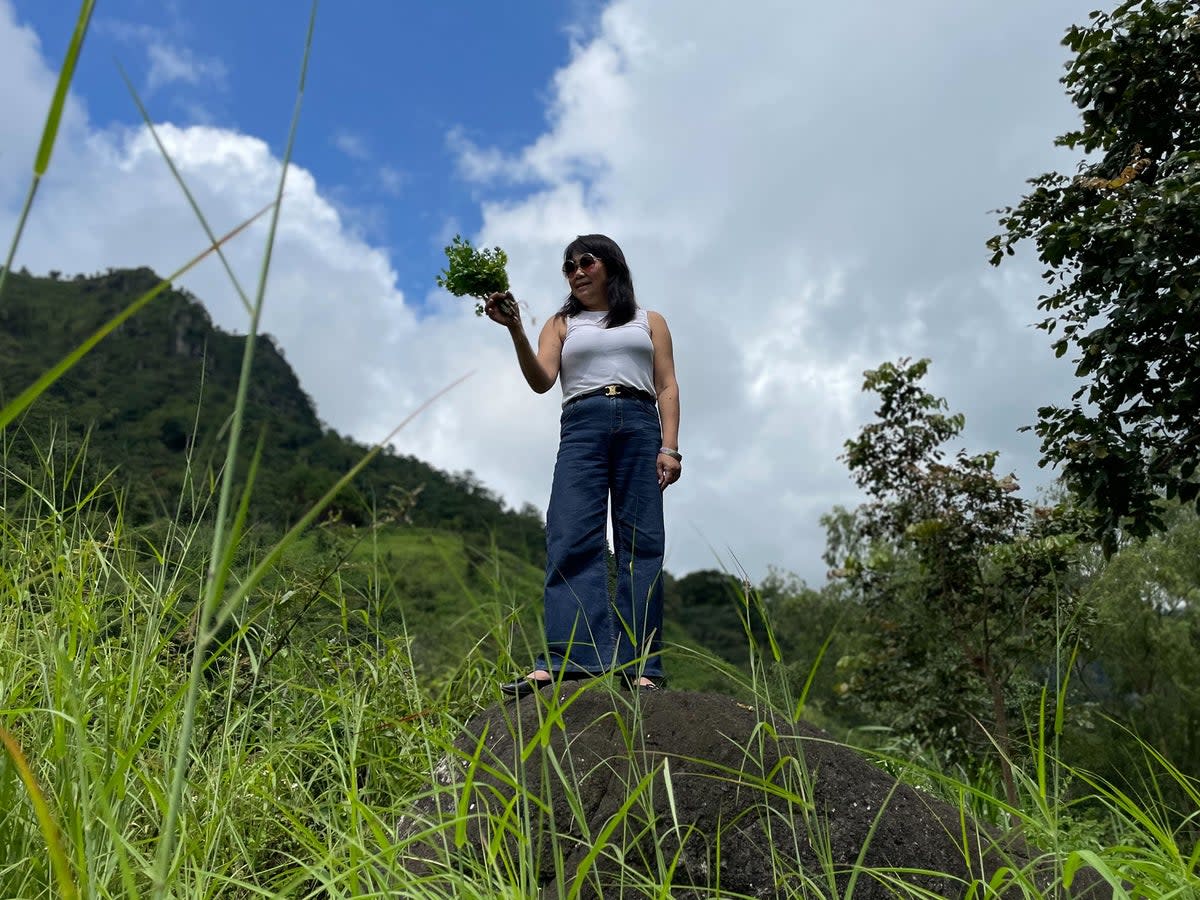
When I’m told that it’s traditional to add one bird’s eye chilli for every year of your life to your som tam – Thailand’s cold green papaya salad – I begin to feel my age. Thirty didn’t seem so daunting until now. Luckily, the more I eat of it, the less I can feel anything at all. It burns me to my nerves.
I am being put to death by chilli by Saiphin Moore (who enjoys a mere 56 chillies in her som tam), the effervescent co-founder of restaurant group Rosa’s Thai. Gathered around a large wok over an open fire outside her family home in Khao Kao, a mountainous region in northern Thailand, Moore is whipping up some of her favourite dishes from her childhood.
There’s the infamously searing pad kra prow (stir-fried minced pork with holy basil), pla kapung neung manao (whole steamed river fish with lime and garlic), pad pak boong fai dang (stir-fried morning glory in oyster sauce) and tom yum (hot and sour lemongrass soup). Many of them are firm fixtures or recurring specials at one of Rosa’s 40 sites – and almost all of them are as hot as the fiery depths of hell.
At one point, she nudges a plate of pathetically tepid pad thai towards me, uncharacteristically whispering: “You should be able to eat this.” I used to think I could handle my spice but after just a few days with Moore touring her homeland, I’ve come to realise that like most farang, my tolerance embarrassingly ends at sriracha, much to the amusement of everyone I encounter on this trip.
The speed at which Moore is able to churn out plate after plate of authentic Thai dishes is, I suppose, the driving force behind her restaurants’ success. Fast food has never had so much flavour. Long-serving cooks often have an inclination towards a sort of aggrieved apathy, but not so with Moore. In fact, I’ve never met a cook with as much experience as she does who’s still so excited to cook for people. After the 20th plate lands in front of us, we practically have to beg her to stop.
To say that this passion sets Rosa’s apart from other chains or has in some way contributed to its enormous success, while true, would be to do Moore a disservice. The fact is, she’s always been a savvy businesswoman. And that started at the age of 12.
She takes us to a sparse patch of land on the top of a hill not far away that used to be her parents’ farm, though all that’s left of it now are sprouts of the coriander they used to grow here and a large rock (the rock is important). “Every day, I would walk up the hill on my own from where I lived to the farm. It would take me two hours,” she tells us, twizzling a coriander stalk between her fingers. She proceeds to pick two more handfuls for what I predict will be another feast to test the elasticity of the human stomach.
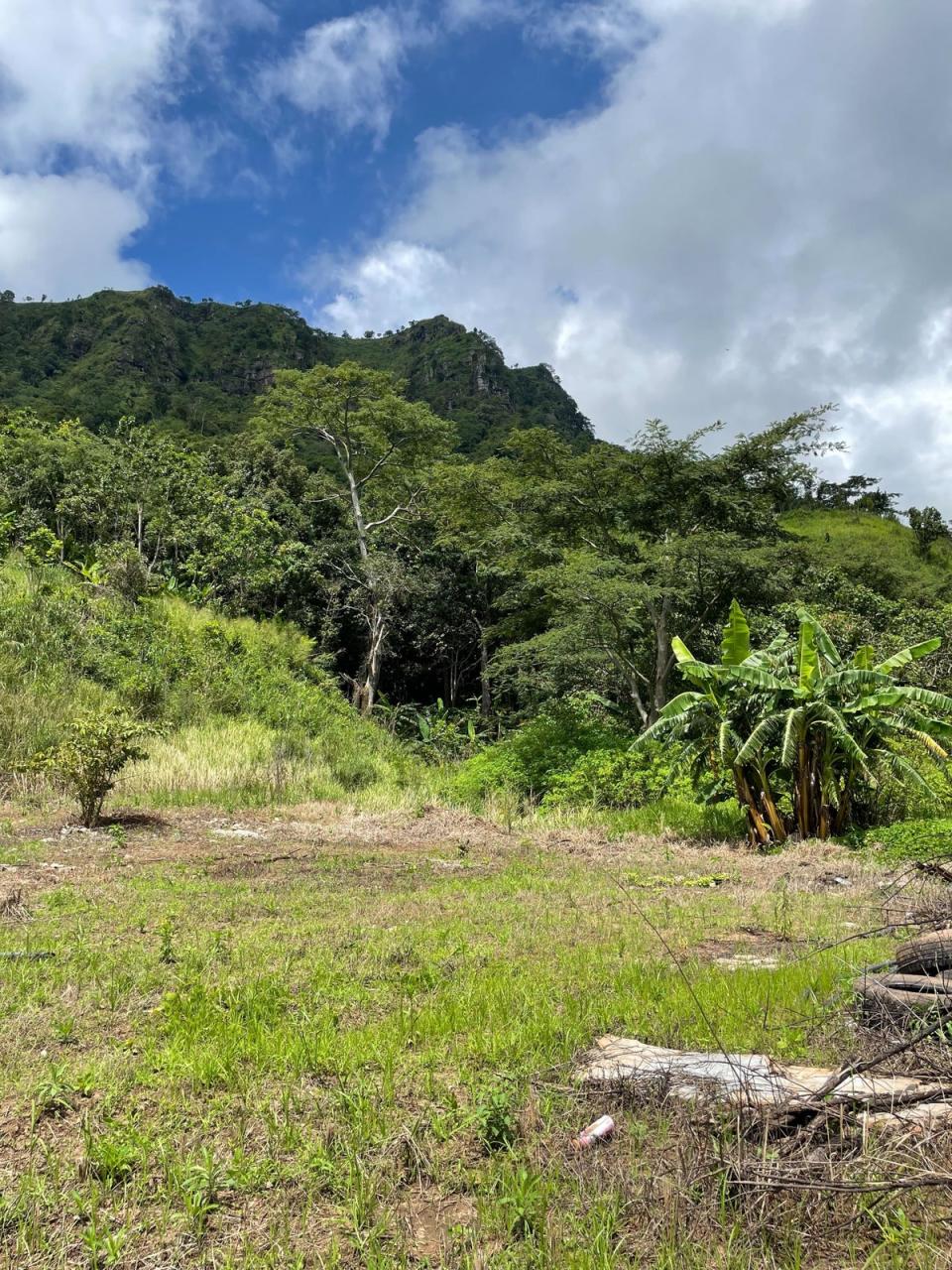
It seems incongruous that Moore, kitted out in Balenciaga and Prada, and with a diary as busy as a top City CEO, spent most of her childhood working on a farm. Long, gruelling days were spent tending the crops, heaving the 10kg harvests over her shoulder down the hill, and lamenting the fact that her parents had pulled her out of school – and not her siblings – to put her to work. Sometimes, with cousins and uncles, she’d shoot golf balls off the top of the cliff, venture into the jungle in search of bamboo or rare herbs, or trek along a Bear Grylls-looking path to a nearby cave shrine.
Occasionally, her parents would leave her to sleep on the farm overnight. “I slept by myself in a little hut I built over there” – she waves a manicured hand impatiently at an outcrop of trees – “I was just 12 years old. And I can remember, one night I could hear an animal walking around my hut. I didn’t know what it was. I remember that night really well.” Shifting uncomfortably, I reassure myself that this isn’t the start of a horror movie, but one of rags to riches.
More often than not, you would find her on the aforementioned important rock, looking out over the valley, dreaming of another life, or stargazing (the sky is still unpolluted enough that you can see the arm of the Milky Way wrapping around the Earth). Today, the rock is overgrown with tall grasses which Moore ferociously bats away to reenact the scene. “I would sit on this rock and look at the town down the mountain where they had electricity,” she tells us. The only electricity at home was a small radio. “I didn’t see electricity up close until I was 16, when I was in the hospital and they turned on the light. That was the first electricity I ever saw.”
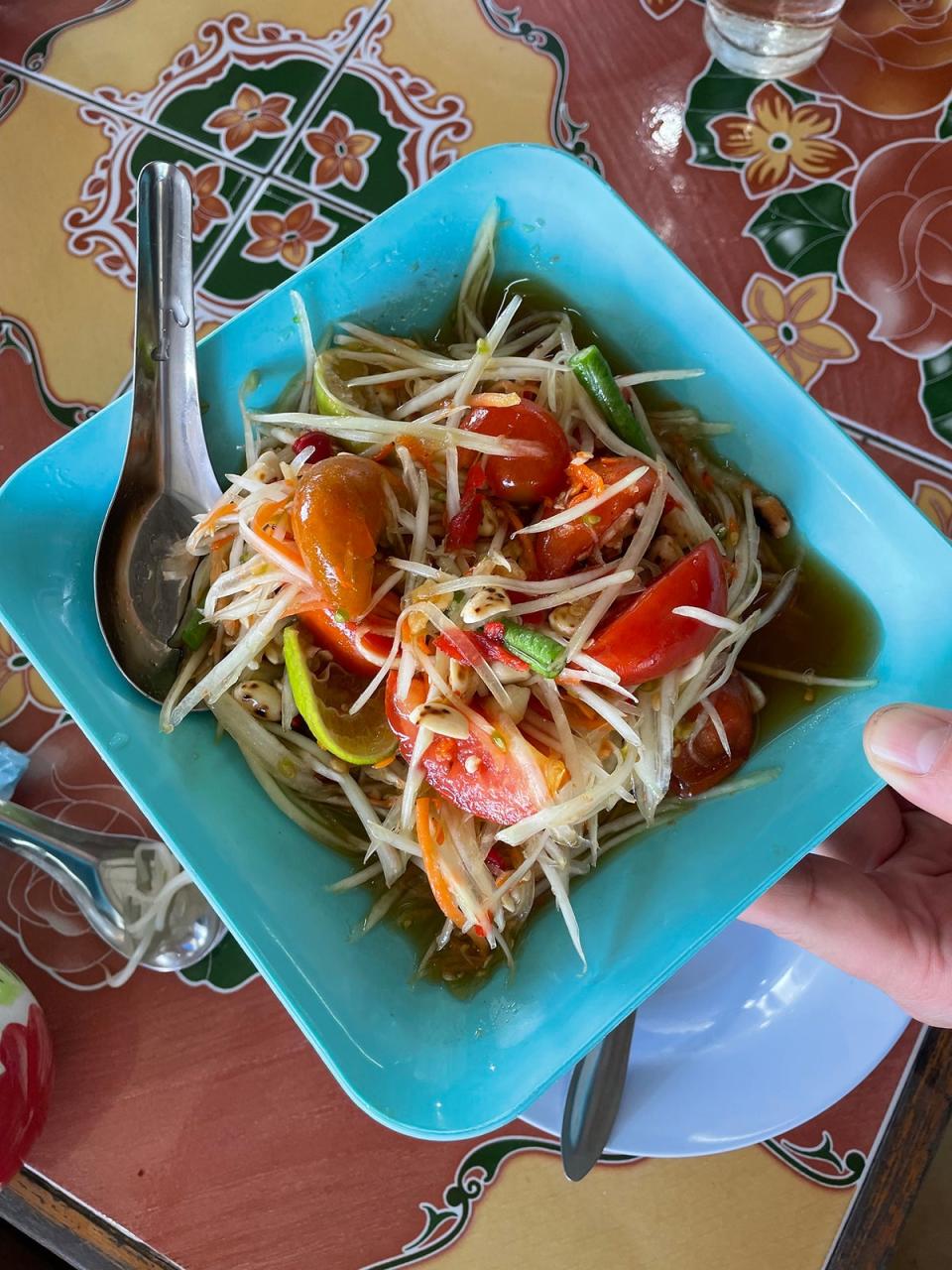
One night, she saw a bright object moving slowly across the sky. It wasn’t until years later that she realised it must have been an aeroplane. When she returned home, she heard an ad on the radio for a job as a nanny in Hong Kong. She thought the light she’d seen must have been a sign. Despite having never left the country nor even visited the capital Bangkok, and not speaking a word of English or Cantonese, she applied and got the job.
A wittier writer might string together phrases like “a journey of a thousand miles” and “a rock and a hard place” to romanticise a story like Moore’s, but perhaps it’s a simple case of the fates aligning. “This is where it all began. Literally right here,” Moore says, looking across her old farm. “When I first came back here, I was just in tears because I cannot believe…” she pauses. For someone who usually speaks a mile a minute and at a fairly dangerous decibel, these words are slower, quieter. After a moment, she says, nodding purposefully: “My life is still really simple. I’m just a simple person with my family.”
Simple she may be, but her story is anything but. Here marks the birth of an empire. Inspired by the noodles that had been a special treat growing up when the family had extra cash, at 14, she declared to her parents that she would be setting up a noodle shop under the house to raise money for her family and the trip to Hong Kong, and bought a motorbike to make deliveries to local farmers. She also taught herself English and Cantonese. “I finished school at year eight, that’s it. I don’t even have a certificate!” When she’d saved enough money, at 18 she left for Hong Kong.
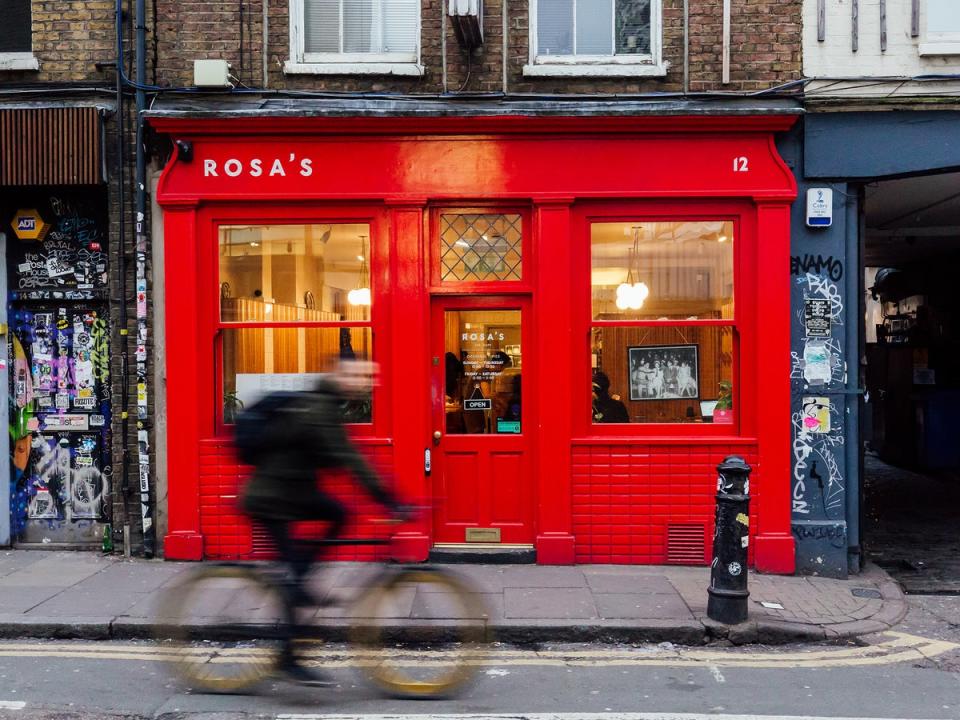
What follows is a story of enterprise, love and heartbreak.
While nannying, Moore picked up two more jobs on the side to save up money, which she used to open her first business, a grocery-restaurant-takeaway, because apparently doing one thing at a time or making her life easier has, admirably, never occurred to her. After she met her first husband, they moved to Jersey in 1996, where she would cook for family and friends, often travelling to Asian supermarkets in London, which was the only place she could find Thai ingredients. When the couple broke up in 2001, she went back to Hong Kong – without her children – and, ever the pragmatist, threw herself back into work. She opened another takeaway, then her first restaurant, the sold-out 30-cover Tuk Tuk Thai, and used the proceeds to return to London. One catering business run out of her home in Wapping, a food stall on Brick Lane and several favours called in later, and the first Rosa’s Thai was born, in Spitalfields. She couldn’t afford to change the signage from the previous occupants, Rosa’s Cafe, but, fortuitously, the name stuck. “Sometimes people still ask for Rosa in my restaurants,” she says, chuckling.
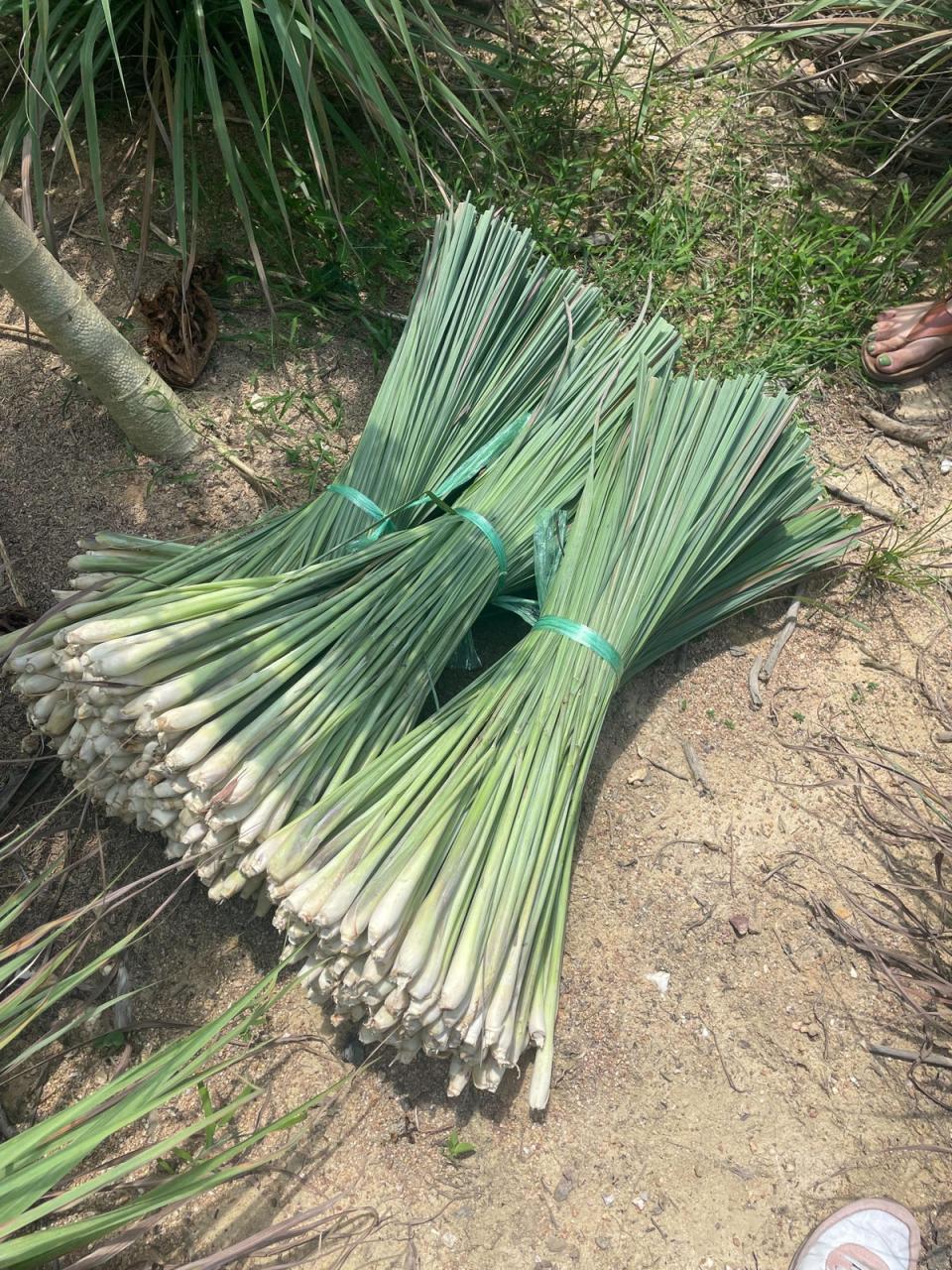
The story after that, thankfully for this narrator, is somewhat simpler. Along came another (now ex) husband who joined the operation, private equity and some big fat funding from Barclays. Rosa’s now boasts 40 sites, 26 in London and the other 14 in major cities across England and Scotland. I think it’s safe to assume there’s probably more to come (restaurants, not husbands, she assures me).
Anyone who’s stepped foot in a Rosa’s, or made it this far through this piece, might be wondering how authenticity could ever be maintained at this scale. Some compromises have certainly been made for meeker Western palates – you won’t have your face burned off like I have, for example – but, for the most part, you’ll see a similar array of dishes at Rosa’s as you would a little roadside restaurant in Khao Kao. No frills is entirely the point. The monthly specials selection is where they experiment and where you might be more likely to find something truly authentic – the most popular dishes of which are promoted to main menu status. Almost all of the dishes – and the drinks, if you can believe it – are under a tenner. That, at least, is as close to the real deal in Thailand as you’re going to get in the UK.
That’s not to say they’ve cut corners. They import around six shipping containers’ worth of rice from a factory in Phitsanulok province to keep them stocked for the year. That’s 151 tons. Is getting your rice from Thailand really necessary? “It’s the best,” Moore simply shrugs. Two of their other non-negotiable ingredients, lemongrass and galangal, are also sourced from Thailand. On a farm in Pattalung province owned by a farmer called Dao Rueng and her family, four foot tall tufts of lemongrass are grown throughout the year and harvested by hand every day. That I was morphing my body into the shadow of a nearby palm tree while being told the farm hands, every inch of skin covered under wide-brimmed straw hats, spend hours crouched on this particularly sweltering stretch of hillside is another point of embarrassment to add to this trip. This 70-acre plot produces all the lemongrass Rosa’s needs (around 40,000kg a year), and then some. The rest is sold to local restaurants or markets.
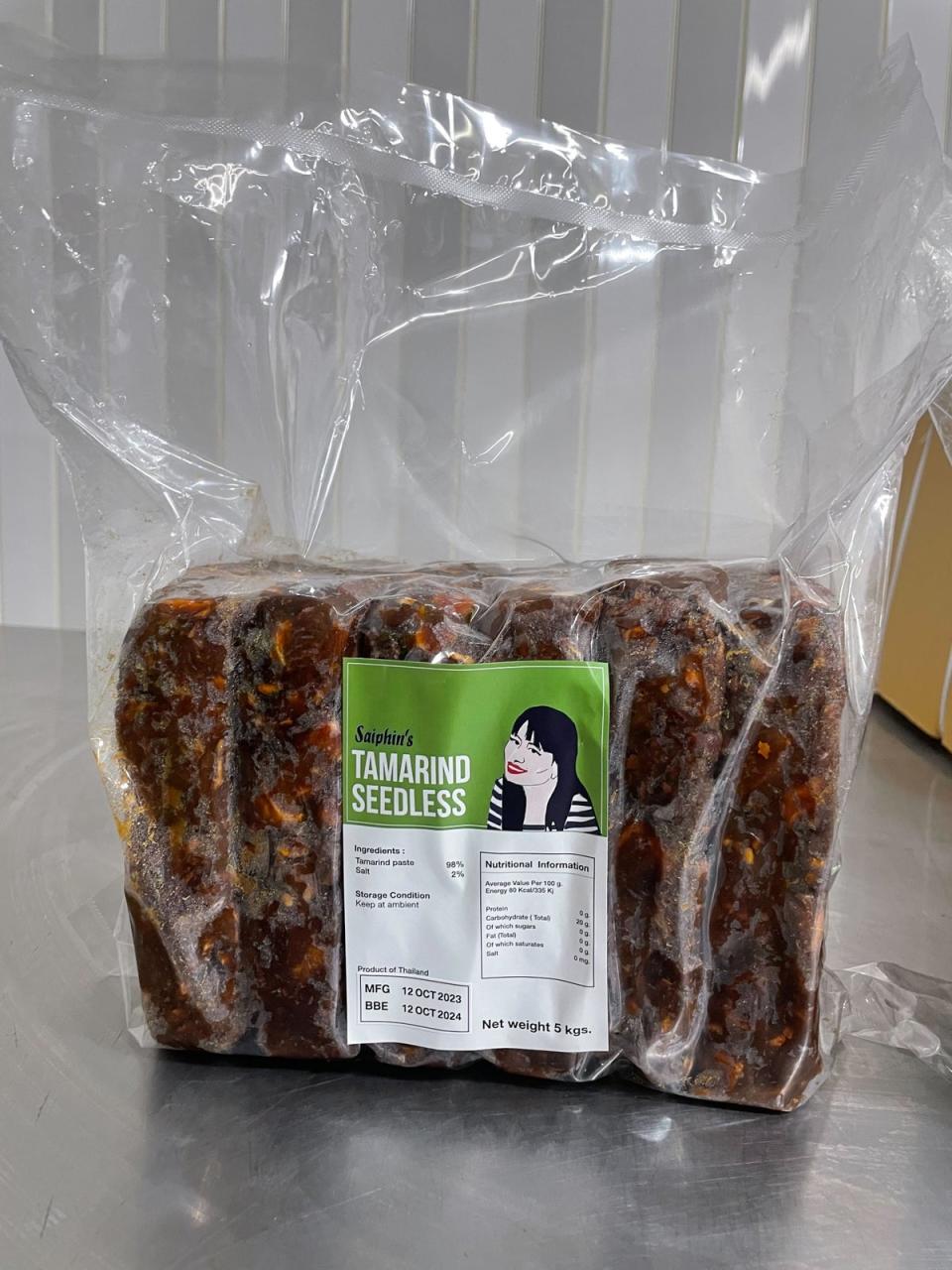
You need to venture a bit higher for galangal, into the jungle, where the farm, also owned by the Rueng family, is barely distinguishable from its overgrown surroundings. Huge gnarly fists of the stuff are wrenched from the earth and proudly displayed to us. They produce around 32,000kg a year for Rosa’s. These subtropical plants can be grown in the UK but not to this size or quality, and they’d have to spend most of the year indoors under expensive heat lamps. Here, they thrive and they have the added bonus of travelling well.
They get their tamarind, which forms the base sauce of their best-selling pad thai, from Phetchabun. The beans are picked by hand from enormous trees throughout January and February and kept in air-tight bags until they can be processed. They come in sweet, sweet and sour (best for pad thai) and sour varieties – the latter of which acts as a natural laxative, Moore chooses to tell us after we’ve each consumed a handful. She’s mischievous, this one. The seeds are then meticulously squeezed out, by hand, hand-pressed in a large mechanical contraption, and bagged up, by hand, ready to ship to London. The result is a sort of textured goo quite unlike the sour tar-like liquid you get in the UK. It seems remiss to call this place a factory when the only electricity I can see are the lights dangling from the ceiling. Climate warriors would be hard-pressed to find something to complain about.
But it’s the curry paste Moore won’t budge on. They used to run the operation out of her daughter-in-law’s garage until last year when they built a purpose-fit factory across the road. The ingredients are hand-churned, then heated with oil in large woks. The fumes this creates are akin to a chemical weapon. I last about 10 minutes before ducking out. The result is an all-natural, flavour-packed (and gluten free to boot) paste to which you need only add coconut milk, meat and veg for a banging green Thai curry – another best-seller. The work done here means they can churn out a dish in London in around 15 minutes. The gaps that are left, and there are few, are filled with British produce.
All this (and I realise there’s a lot of it) to say that Rosa’s Thai is more than the sum of its parts. Between the pad thais and the tom yums, there’s a story that might surprise you. And if I’ve learned anything from Moore and our trip around Thailand – other than that my palate isn’t nearly as broad as I brag about it being – it’s that even for a cuisine as punchy as Thai, it’s not just the ingredients and flavours and techniques that define it, but how we share it. Whether that’s around an open-air wok on the top of a mountain with a view straight out of a gap year catalogue, or tucked away in a cosy little cafe in London with friends, sipping bubble tea and sharing the story of that time you tried to eat 30 chillies.

